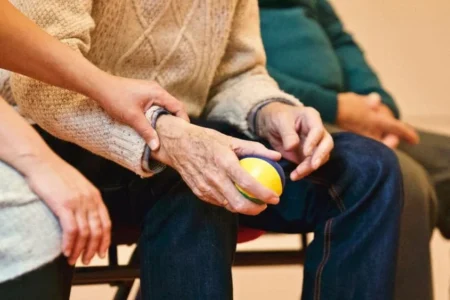A Comprehensive Handbook for Family Caregivers
- Updated on: Nov 22, 2024
- 3 min Read
- Published on Oct 3, 2023

If you are a family caregiver, it is vital that you understand how to manage the weight of the responsibility and take proactive steps to protect your own health. Whether you have been acting as a family caregiver for many years or are just beginning to take on this responsibility, this handbook covers the essential considerations you need to address now and moving forward.
Recognize the emotional toll being a caregiver takes
Becoming a loved one’s caregiver can feel like the most natural decision in the world, but it is essential that you recognize and accept the negative emotions that are likely to surface, as well as the positive ones. For example, many caregivers report feelings of guilt or helplessness, particularly if they have to watch their loved one suffer pain or emotional distress. They may also feel anger or resentment at times, anxiety, or possibly even grief for the lives and dreams they and their loved ones had before an illness or injury.
Having these emotions is not shameful or unnatural, but trying to repress them could cause more problems. It can help to keep a diary, but it is also important to find someone to whom you can express your feelings without fear of judgment. This might be a friend, family member, or even a professional counselor.
Asking for support from family and friends
Of course, your family and friends may be able to provide more than a listening ear. No one can provide constant care for another without sacrificing their mental and physical well-being. If you are drained, you cannot give your loved one the level of care they need, so ask for help before you need it. This might mean creating a schedule that means once or twice a week, another family member steps in to give you a break, or they might take a particular task off your shoulders on a regular basis, like food shopping or cleaning the home.
Hiring professional homecare services
Another option is to employ a professional caregiver service such as Alinahomecare to support you. For example, they might visit the home to provide medical or personal care (bathing, dressing, feeding) to your loved one a few times a week, giving you some respite. Alternatively, there are meal delivery services, transport services, physical therapists, and trained nurses who can administer more complex care.
Remembering to care for yourself
The above points will help you provide practical care for your loved one, but it is vital that you and they can still find joy and human connection. You must ensure you are making time to look after yourself physically, mentally, and emotionally.
Make sure that you eat a balanced diet and stay hydrated. Get some exercise and spend time outside, where you can benefit from the fresh air, sunlight, and the beauty of nature. Keep your hobbies and interests alive – they will help you retain your identity as more than a caregiver.
If possible, find ways to connect with the person you are caring for in a way that is meaningful to both of you. This might mean planning activities you can do together, visiting new places, crafts, or even simply reading books to one another.












